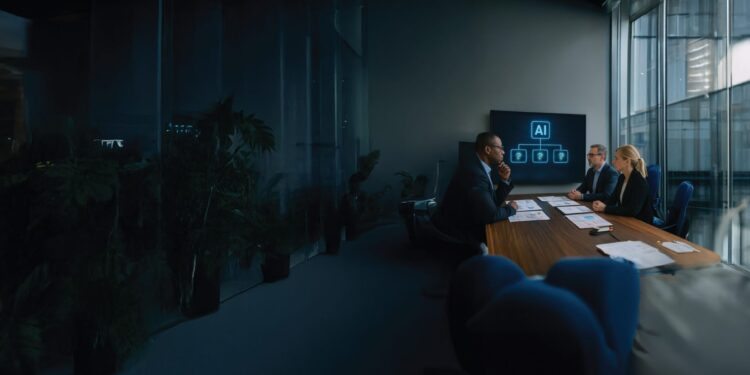Artificial intelligence is changing the way the world works at a blinding speed, forcing workers, companies and countries to adapt quickly or face being left behind. AI does more than take over jobs, but is reconstructing the work culture, reshaping job descriptions, and defining new skills that are necessary.
Automation of the mundane Source At the center of this transformation is the automation of mundane tasks. AI-powered systems are increasingly taking on data entry, scheduling and simple customer questions, freeing up human employees to focus on more complex, strategic and creative tasks.
This enhancement of human performance is not just driving productivity and efficiency in industries, it’s also altering the definition of terms of employment. Job dynamics are changing and you’ll have to work with AI systems, this is why human-AI teamwork will be a corner stone of modern office.
This monumental shift calls for a proactive honing of our skills. At the same time that AI-related proficiencies like data science and machine learning engineering are in particular demand, there’s an equally growing focus on distinctly human skills. Creative thinking, emotional intelligence, and the ability to adapt and collaborate will all rise in importance as AI takes on the more mechanical parts of work.
Both organizations and individuals are increasingly investing in upskilling and reskilling programs to adapt to this new world, and acknowledging that lifelong learning has shifted from being a “nice-to-have” to a “need-to-have” in order to stay employable.
And beyond specific jobs, AI is influencing broader workplace culture. Companies are using AI to gain real-time understanding of employee sentiment, improve communication, and promote inclusivity in highly diverse workforces. Personalized learning paths, new levels of organizational structures, and even the ability to stave off employee burnout through task automation are all within reach by leveraging AI to take care of employees.
But the move comes with its own set of challenges. There remain concerns of job displacement and ethical considerations as AI is used in hiring and decision-making. To get ready for this altered future, companies need to develop a culture of learning, encourage experimentation and have explicit AI policies in place.
Transparency and trust are keys if we want to alleviate fears while responsibly integrating AI, harmonizing progress with the well-being of society. The future of work will be more innovative than ever before, but it depends upon a shared commitment to adaptability and evolution.










![Online Scam Cases Continue to Rise Despite Crackdowns on Foreign Fraud Networks [Myanmar] Online Scam Cases Continue to Rise Despite Crackdowns on Foreign Fraud Networks [Myanmar]](https://sumtrix.com/wp-content/uploads/2025/06/30-12-120x86.jpg)




